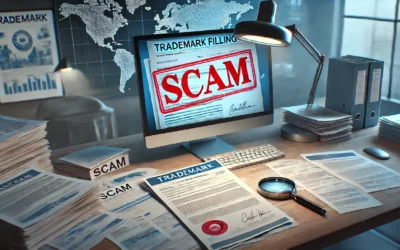Acronyms are words or letter combinations that have been formed from the initial letters of other words. Simple and well-known examples of this are GPS (short for Global Positioning System) and VPN (virtual private network). Acronyms are appealing for branding purposes because they are short, catchy, and easy to remember. The question we often get is whether these acronyms can be registered as trademarks.
Acronyms as trademarks
There is nothing inherently preventing acronyms from being registered as trademarks. The only requirement is that they have to be distinctive. The above examples (GPS, VPN) could not be registered as trademarks because they are common terms that directly relate to the product. An average consumer would immediately associate GPS with a type of product (for example, navigation devices) rather than with a particular commercial source.
Acronyms can be descriptive in two ways. Firstly, the acronym itself can be understood to be a descriptive or generic term even if it is not necessarily known what it refers to. For example, not everybody knows that “laser” is an acronym for “light amplification by stimulated emission of radiation”. Laser is generally understood as a generic term even where the origin of the acronym is not known. Secondly, an acronym can be descriptive where the underlying phrase is descriptive, and the acronym is known to be referring to that. For example, NFT is known to refer to the phrase “non-fungible token”.
Distinctiveness of acronyms
Acronyms can be distinctive even if the underlying phrase is descriptive, provided that this link is not obvious and commonly used. For example, a trademark for “healthy water” would obviously be descriptive and devoid of distinctiveness, but an acronym HW would be distinctive.
In fact, the world is full of brands that are constructed in this manner. Here are some examples: CNN (Cable News Network) HBO (Home Box Office) UPS (United Parcel Service) KFC (Kentucky Fried Chicken) IBM (International Business Machines)
On the other hand, if the mark contains the acronym and the underlying phrase, it might not always be distinctive. While HW would be distinctive on its own, HW HEALTHY WATER would probably not be, because in this context the otherwise distinctive element HW would be associated to refer to healthy water, making it in that context more like GPS or NFT.
The decisive question is whether the target audience of the trademark can associate the acronym with a descriptive phrase if they have never seen the mark before. If KFC was a commonly used acronym for Kentucky fried chicken, it could not be registered as a trademark.
“Wrong” acronyms
Sometimes trademark applications get rejected because they are considered to be acronyms of descriptive terms, but in the applicant’s use, the acronym is derived from a completely different phrase. It does not matter what the actual source of the acronym is if the acronym can be linked with another underlying phrase. We have seen cases where a trademark was rejected because it was descriptive, but the applicant’s view was that the acronym referred to something completely different. Unfortunately, this is not a valid argument. You cannot get exclusive rights to letters GPS, even if in your case the letters refer to “Giant Portable Sensor”. This is because the public would associate the name with the global positioning system regardless of the actual origin of your acronym. The decisive question is how a person who has never seen the mark before understands it.”
Conclusion
The registration of acronyms as trademarks hinges on their distinctiveness and their potential to be associated with a particular source rather than common terms or generic phrases. While acronyms like GPS and VPN, directly linked to their respective products, may not qualify for trademark registration due to their commonly known descriptiveness, acronyms like CNN, HBO, UPS, and KFC demonstrate how distinctiveness can be achieved even when derived from descriptive phrases. The key determinant lies in whether the target audience can connect the acronym to a specific meaning, regardless of its actual origin. In short, unique acronyms make great trademarks.
See also
How to trademark an emoji?
Slogans as trademarks



